Analysis
Advertiser Outlook on Generative AI: Sunny, With a Side of Caution
by Stephen Graveman5 min read
Abstract
- Advertisers are thrilled with generative AI—60% believe it will transform their role
- Nearly 75% of advertisers are using generative AI in their jobs currently
- 71% of marketers believe generative AI will eliminate busy work
- Still, marketers remain concerned about the quality of AI output, its inability to compete with humans, and their lack of training on the technology
Generative AI is having quite a day in the sun right now — at this point, it might be easier to determine which brands aren’t getting involved with AI. Yet while this nascent technology may still be unfamiliar and concerning to consumers, marketers are (perhaps unsurprisingly) feeling much more bullish on the technology.
Already, marketers are using AI to generate high-quality content tailored to the needs of specific target audiences, while also using it to analyze and optimize ad campaign performance.
The rise of AI may be transforming advertising as we know it, but many marketers are approaching the new technology with a mix of excitement and caution — and it’s up to companies to give them the data, training, and tools they need to maximize this new and exciting technological innovation.
The Great AI Rush
The advertising world has always been known for to embrace and adopt new technologies early on, and generative AI is no different. Despite consumers being both unfamiliar and uncomfortable with the technology, advertisers are feeling quite confident—and they’re leading the AI charge.
Literally, in fact. Among the industries using generative AI in the workplace, marketing and advertising has the highest adoption rate at 37%—a number that outperforms even the technology industry itself (35%).
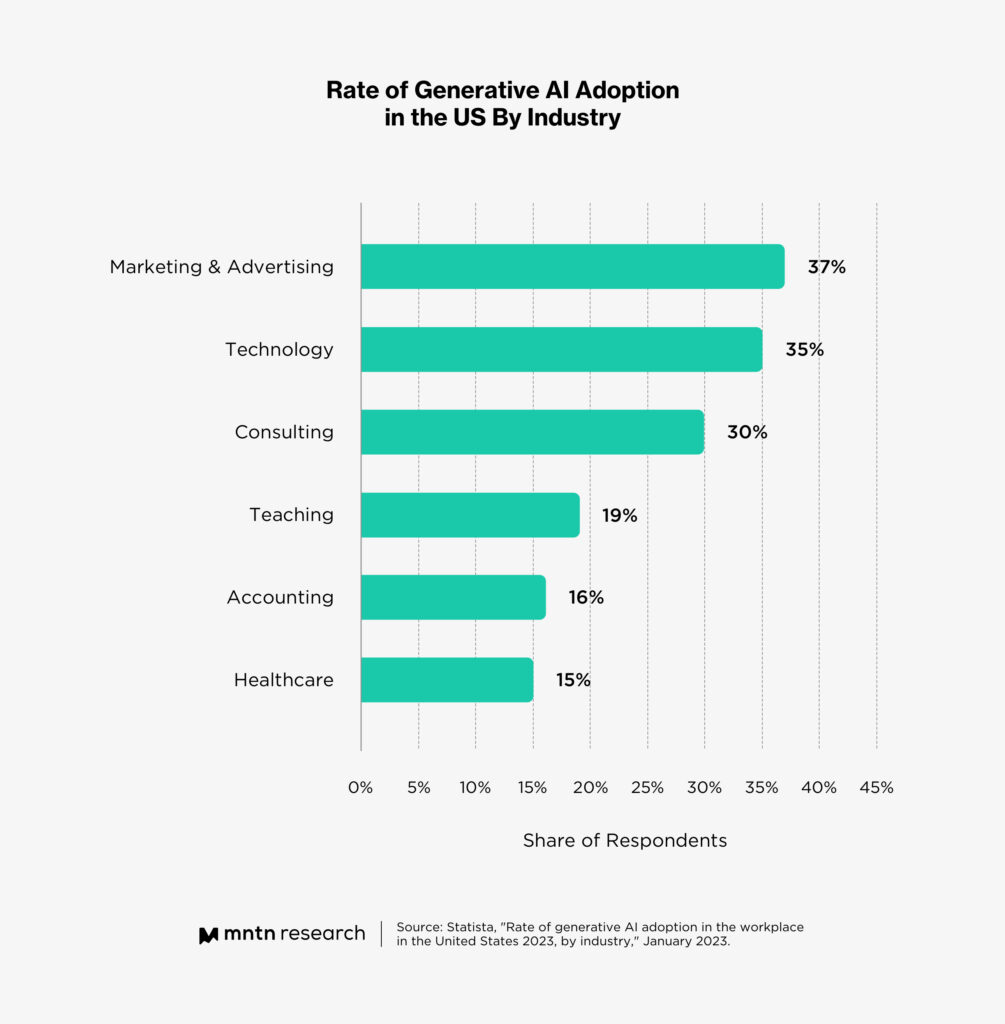
As of March 2023, nearly 75% of marketers report using generative AI in their companies—a surprisingly high number, considering that the technology is still in its relative infancy.
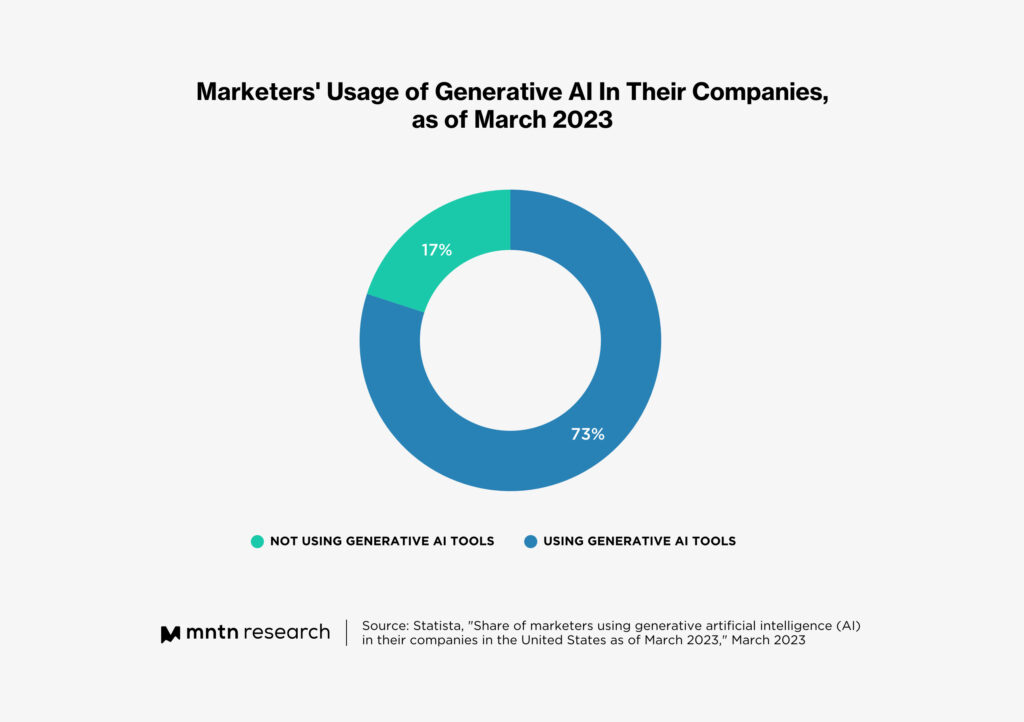
As the technology continues to improve and grow in relevance, this number will surely continue to climb even higher. AI’s advantages in marketing—from data analysis to creative enhancement—will also likely end up pressuring holdouts to adopt the technology to stay competitive.
How Marketers Are Using AI
Content creation has always been a double-edged sword for marketers. On any given day, your brain can come up with hundreds of powerful, creative ideas—but your resources, budgets, and human ability to bring them to life are not nearly as limitless. In recent years, marketing has gotten more complex, introducing more manual levers to pull and processes to keep creatives away from what they do best—create.
Generative AI couldn’t have come at a better time, then. By streamlining processes, freeing up time, and making life easier, the technology has enabled marketers to focus less on daily minutia and more on big-picture ideas.
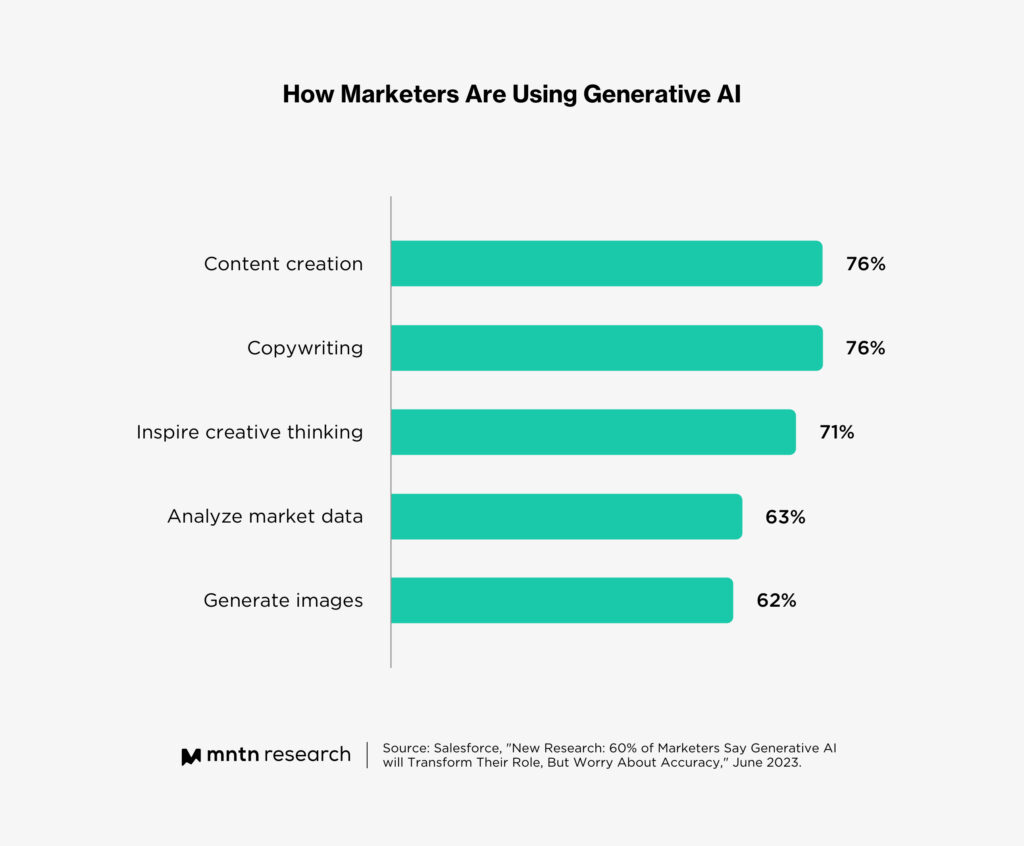
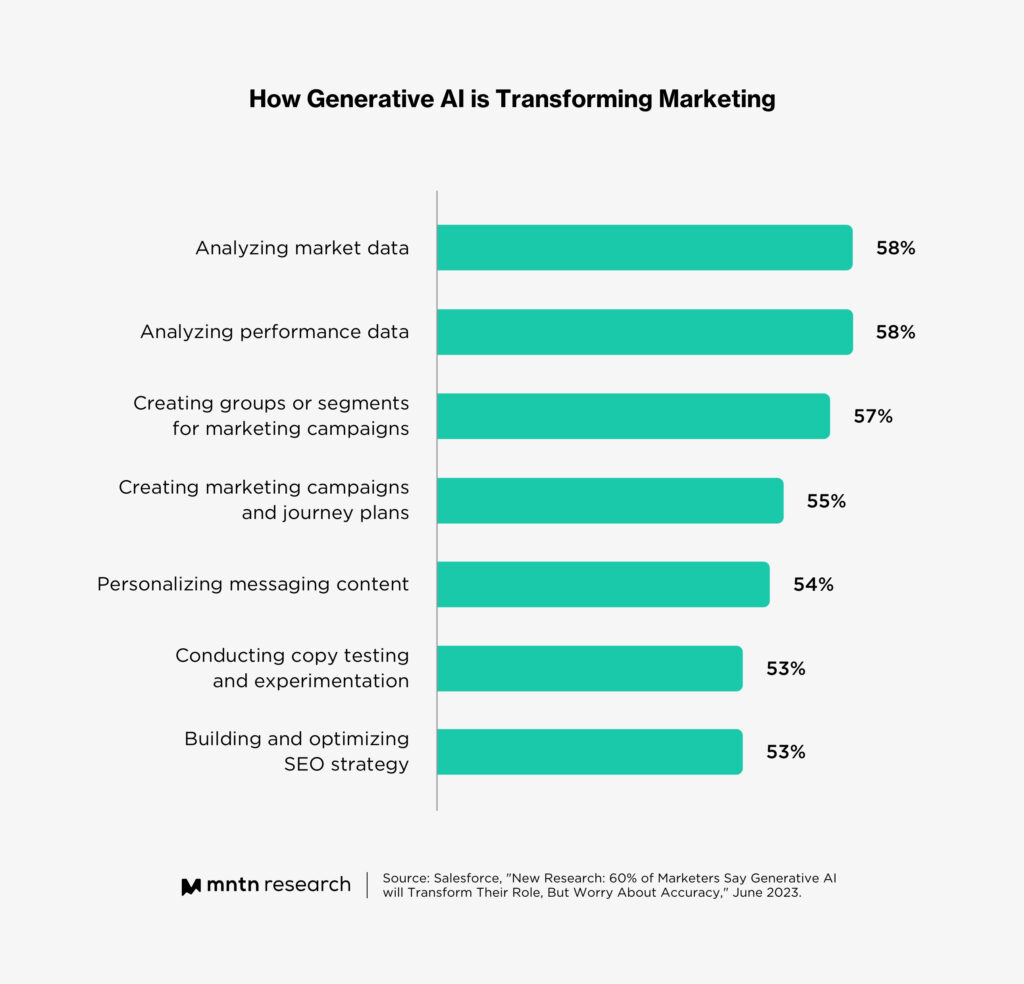
Marketers say they use generative AI to target the basics, but as their familiarity grows they also see bigger uses in its future. 53% of marketers say that generative AI is a “game-changer,” and 60% believe that the technology will radically transform their role.
Best of all, AI isn’t just changing how marketers approach their jobs—it’s making them more productive. Marketers polled estimate that generative AI can or will save them over five hours per week (to put it in perspective, that’s about one extra month a year) to focus on more meaningful work.
71% of marketers polled believe generative AI will eliminate busy work, 71% believe it will help them focus on more strategic work, and 70% think it will increase their productivity.
Marketers Are Still Concerned With AI
Despite the excitement and wide-scale adoption of generative AI, there’s still some hesitation among brands and agencies. When asked what concerns them about generative AI, “accuracy and quality” of outputs led the list at 31%. This can likely be attributed to two factors: the lack of a human touch (quality) and the data being used (accuracy).
While the datasets of some generative AI tools, like ChatGPT, are necessarily outdated by a few years, marketers’ concerns about accuracy go deeper than that. I think what I’ll do is tweak the sentence to: 67% of them believe that their company’s data is not currently compatible with generative AI — and 63% say this trusted customer data is crucial to make the tool work.
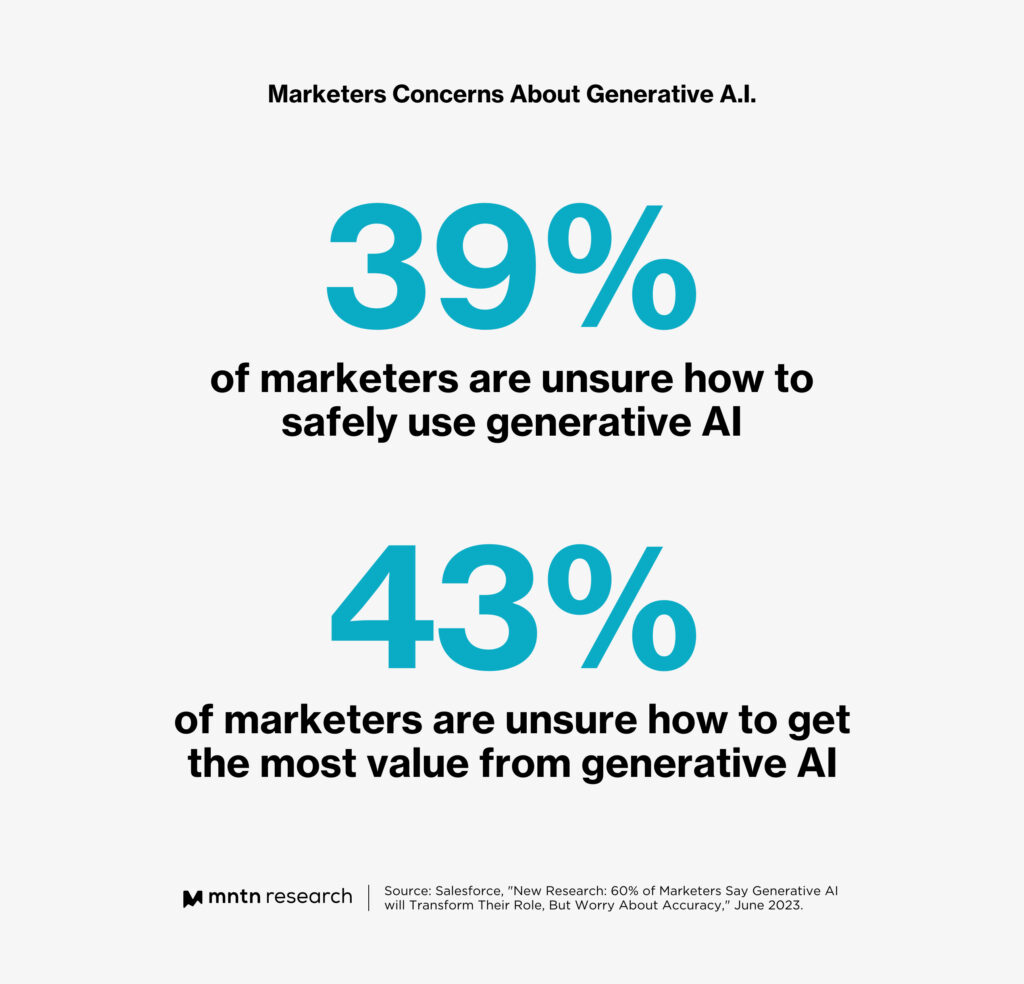
Moreover, despite the rush to adoption, many marketers simply don’t feel prepared to use it properly. 54% say that AI training programs are important for them to learn the technology, but 70% report that their employer doesn’t offer any kind of AI training.
As generative AI continues to play a crucial role within marketing teams, organizations would benefit by cleaning up their data for AI use, staying updated on the latest innovations, and offering training to their employees.
The final major flaw marketers cite is, ironically, generative AI’s main feature—that it’s not human. 71% believe the technology’s lack of human creativity and contextual knowledge might be a barrier to using it successfully in the workplace. As a result, 66% of marketers believe human oversight will be necessary.
Unlike the issues with training and accuracy/quality, this last concern is unlikely to be solved any time soon. That said, marketers can navigate the challenge by approaching the tool as just that—a tool. While AI can help create compelling, emotionally charged, and inspirational ads, it won’t be able to bring it over the finish line quite like a human can. That human touch will still be a crucial part of the equation for the foreseeable future.
Final Thoughts
In the end, generative AI is a very new—and very exciting—technology for marketers, as long as they approach it with the right mindset. With usable data, proper training, and the human element in play, marketers are likely to continue feeling optimistic about the technology—and will no doubt end up paving the way for other industries to follow in their footsteps.
Subscribe to the MNTN Research Weekly
Sign up to receive a weekly feed of curated research, sent straight to your inbox.